- Home
- Deborah Smith
Silk and Stone Page 3
Silk and Stone Read online
Page 3
Hugh stroked her shoulder. Dr. Hugh Raincrow. What a lovely piece of work he was. There had been plenty of gossip when they married, lots of “He’s a credit to his race, but …” talk, and she hadn’t ever listened. He loved her as much as she loved him, and the world was opening up for couples such as them. Camelot had arrived with the Kennedys.
Sarah curled closer to him, his bare thighs warm and hard under her leg, his chest rising and falling slowly under her palm. He stroked her hair, each soft caress absorbing her misery. She was thinking that there was one story in the history of Pandora that deserved special reverence: The friendship between the Vanderveers and the Raincrows, and the Pandora ruby. Two families, two cultures, one symbol of loyalty, stretching back more than 120 years. There might be no Raincrows left in Pandora if the Vanderveers hadn’t helped them hide when the army rounded up the Cherokees for removal.
The ruby had been a gift from the Raincrows for that friendship. Generations of Vanderveers had cherished the heirloom, and each passed it down to the next generation through the eldest daughter. Where there was no daughter, it had passed to a Vanderveer niece.
Next year, when she turned twenty-one, it should have come to her.
But not now.
Her thoughts turned to the woman who had appropriated her brother—and her ruby. Alexandra Duke had more kin than a dog had fleas. The Dukes were a respectable-looking bunch: Sarah gave them that. They had money all right, a potful of it, but they were social outcasts, and they knew it. They liked to hint that they were distantly related to the tobacco-dynasty Dukes who’d endowed Duke University, but everyone knew that was just wishful thinking: This Duke clan had scratched its way upward in the textile mills, paying their workers slave wages for long hours at the looms, holding their people hostage during the hard years of the twenties and thirties. Some of the ugliest strikebusting in the history of the state had occurred at Duke mills.
Society didn’t forget stories about mill workers being beaten and threatened. To Sarah, like most self-sufficient people born and bred in the mountains, the idea of controlling other people’s lives, or being controlled, bespoke a sinister loss of grace.
Plus the Dukes were lowlanders, and that conveyed a lack of proven durability in the eyes of mountain people. Life in the rolling, accessible regions of the piedmont, with its big cities and industries, was easy and safe compared to the existences people carved out among mountain peaks and steep gorges. In every sense of the word, the Dukes were on their way up now. But she didn’t want her brother, Judge William Vanderveer, to be one of their ladders.
William was nearly twenty years older than she—shy around women, scholarly, infinitely strict but honorable. Their parents had died when she was a child; William had raised her like a father. William had put that responsibility ahead of his own social life, she realized sadly, and now, with her grown and married, he was desperate to make up for lost time. Too desperate.
Hugh’s deep, sympathetic voice distracted her. “Is the stone worth alienating yourself from your brother?”
Sarah sighed. “How can I face our children if I won’t fight for what’s theirs?”
“Sarah, when we have children, they’ll know what’s important, just like you ought to, and I know—”
“You ought to listen to your mother. She says it’s a medicine stone.”
“I know, I know.” Hugh kissed her, his breath feathering her face softly. He recited dryly, as if his mother were speaking, “And if I used real medicine instead of white medicine, I’d appreciate its power. But I can’t work both sides of the road. If I start chanting and tossing tobacco to the four winds whenever a patient walks into my office, I suspect I’ll lose my practice. And my medical licence. The old ways are useless, sweetheart. They won’t get the people anywhere.”
Because she was tired and depressed, she blurted out, “Is that why you married me? To get ahead?”
He raised himself on one elbow and looked down at her. A trace of moonlight glittered harshly in his eyes. He was the most gentle, loving man in the world, slow to anger, quick to forgive. At the moment he was angry. “I lost a dozen white patients in town when I married you. And when I made my rounds at Cawatie after our wedding, one of the Keehotee boys slashed my tires. Slashed my tires, even though my brother died in the same platoon with their uncle in Korea. My own aunt Clara trotted out of her house and threw a bean dumpling at me.”
“You never told me,” Sarah whispered.
“Because I didn’t want to hurt you. When you hurt, I hurt. That’s why I don’t want you to brood over the damned ruby. I want you to forgive your brother and tolerate Alexandra, even if she’s a first-class—”
“Witch. She’s a witch.” Sarah hissed the words. “Your mother says witches are real, and I believe her.”
“She’s a horned toad, for all I care.”
“William’s the one who hurt me.” She swallowed hard, her throat on fire. “He was always so much older—after our parents died, he was … he’s more like a father than a brother.” Her voice rose. “She’s going to make him miserable, Hugh. He loves her and he can’t see that. And if I let her run over me too, I’ll be helping her ruin him. No. I won’t pretend it doesn’t matter.”
“I understand, but—”
“No, you don’t. I’m pregnant.”
After a startled moment, Hugh pulled her closer and kissed her. They murmured questions and answers to each other softly, joy mingled with the day’s poignant disappointment. For a while he thought she’d forgotten about her brother’s blind betrayal. Touches, kisses, small smiles, segued between them, and she seemed content. He drew her head into the crook of his neck and sighed happily.
But she breathed against his ear, “Your mother told my fortune. She says we’re having twins. That ruby is theirs too.”
Exasperation strained his serenity. “It’s just a rock when you get down to the facts. An expensive rock.”
Hugh moved over her, stroking her belly with one hand, then settling between her thighs when she shifted under his teasing fingers. Sarah shoved lightly at him. “What are you doing?”
“Paying a visit to our babies. Distracting their mama so they can get some sleep.” He brushed a kiss over her mouth. “Do you want their first words to be ‘Where’s my ruby?’ ”
“No.” Sarah put her arms around him and buried her face in the crook of his neck. Yes, she admitted silently.
Depending on which story a person liked best, their beloved North Carolina town had been named for a Greek myth or a local whore, or both.
Today she was inclined toward the Pandora whore story. It seemed appropriate, considering the woman her brother had just married.
Chapter
Two
Pandora’s town limits encompassed most of a small plateau at almost precisely 5,280 feet above sea level—one mile high, in the tops of the Cawatie Mountains. The town had more than twice as much altitude as residents—maybe 2,000 people, and most of them scattered on tiny, secluded farms along the ridges and deep in the coves below town.
The earliest Scotch, Irish, and Dutch immigrants had been drawn to the misty, ancient mountains of western North Carolina by rumors of rubies and other precious gems mined by the Cherokees. The rumors were more than true. The newcomers plucked fine stones from the riverbanks, from the hillsides, from the ruts in deeply churned wagon roads. They riddled the mountains with mine shafts, looking for more. But the easiest pickings were taken within a generation, after bloody feuds over the mines.
When the mines played out, the hardiest survivors stayed on, independent and passionately devoted to a land of breathtaking beauty and isolation, of freedom.
The Indians were reduced to hiding, for some years, from federal troops. Those fugitives were all that remained, after thousands had been marched to the Indian Territory out west. The whites opened shop, built churches, farmed the creek valleys, and ran lumber mills supplied by an endless vista of virgin forest. The Cherokees—those
who survived despite starvation and threats—did the same after the government granted them amnesty. Some intermarried with the newcomers, some withdrew bitterly to reservations, and others simply kept to themselves, clinging to pieces of land so rugged, no one would challenge them for it.
Clara Big Stick clung to traditions just as tenaciously.
The Raincrow babies were a matter of professional concern to Clara. As a medicine woman, it was her duty to give them the proper protection against evil after they entered the world, even if she disapproved of their parents’ mixed marriage. She was, after all, honor-bound to treat members of her own clan, which the Raincrow twins were, but only on a technicality.
Clara brooded over the ethical quandary as she followed Rachel Raincrow’s spry path up the brick steps of Pandora’s small hospital. Certainly she had an obligation to Rachel Raincrow—a respected elder, and her distant cousin—who had requested her services. She figured the matter of the babies’ clan would have to be accepted, problems and all. By rights they belonged to their mother’s clan, but because Hugh Raincrow had seen fit to marry a white woman, and whites had no clans, traditions would have to be juggled.
The spirits might not be entirely fooled, but some protection was better than none at all.
Short, sturdy, and strong—at forty, she was in the prime of her career—Clara easily shouldered a heavy woven bag filled with her materials. She cast dour looks at the squat little hospital’s lobby as Rachel Raincrow led her through, ignoring the curious stares of the nurses. Sacred ceremonies could not be confined to impersonal places. White people were so ignorant.
“My son is not here right now,” Rachel whispered in Cherokee as they made their way through a maze of short hallways and then double doors marked MATERNITY WARD. “He went home to sleep. Sarah said we should come now. She knows this is important, and he doesn’t believe.”
Clara frowned thoughtfully. “She’s a wise woman, even if she’s not one of the people.” This fact reassured Clara. Surely the mother’s good heart would account for something.
They entered a small private room filled with flowers—that was a good sign—but smelling unpleasantly of useless things like antiseptic. Clara saw immediately she had her work cut out for her: Rachel’s freckled, red-haired daughter-in-law was lying in the bed, and looked none too well. This show of weakness might encourage bad spirits to waltz right in. “Sit up,” Clara told her, dropping her medicine bag into a chair and going to Sarah.
Sarah groaned. “Mrs. Big Stick, I had a cesarean twelve hours ago.”
“I can’t help that. Sit up.”
She nodded wanly. Clara and Rachel helped her scoot back and lean against the pillows. They smoothed her frilly cotton nightgown, and Clara made a satisfied mental note of the stains on the front. “You’re feeding them yourself?” she asked.
Sarah chuckled. “Oh, yes. They eat like horses. The nurses think I’m being peculiar, but I don’t want bottles.”
“Nurses are crazy.” The poor, abused girl had the courage to smile at her. “See my beautiful babies?” She pointed to a pair of bassinets beside the bed. Clara nodded brusquely and went to them, shaking her head in disgust when she saw how many clothes they wore. Goodness, the spirits would think these two couldn’t survive at all.
She removed their tiny shirts, their caps, their diapers, then sighed with relief. One boy, one girl. A good balance. “What do you think?” Rachel asked, peering over her shoulder worriedly. She spoke only in Cherokee, as Clara had instructed. Best that the spirits think these babies belonged entirely to the people. “Big, with clear eyes,” Clara noted approvingly. “Strong genitals.” She peered into their eyes and stroked their fine black hair. Their skin would be awfully pale, she feared, and their light eyes would undoubtedly be green, like their mother’s.
“They have it,” Rachel said proudly, laying one gnarled hand on each of their heads. “Like me. They have the gift. I can feel it.”
“Are you certain?” Clara looked at her, impressed but worried. This complicated things. Extra precautions would be necessary.
Rachel nodded. “They’ll know how to find things.”
“You must teach them how to go along carefully, then.”
“I will.”
Clara quickly moved vases of flowers off a little table, and rolled it near the bassinets. She set out a black pottery bowl that had been made by her great-grandmother in Oklahoma, then broke dried tobacco and herbs into it. “What are their names?” she asked Sarah in English.
Sarah smiled wider. “Jacob, for Hugh’s brother, and Eleanore, for my grandmother.”
“Strong names. You did well.”
Sarah’s smile faltered. “No, I almost died during labor. But I love them so much. Please do your best for them. I don’t think I’ll be able to have any more children.”
“I had only two,” Rachel Raincrow said. “Two are plenty if they’re the right two.”
Sarah’s face brightened. “I agree. And Hugh said the same thing.”
Clara struck a match and dropped it in the bowl. Seconds later, fragrant smoke wafted up. Clara stroked it with both hands, urging it to spread and purify the room. She concentrated on the bowl, chanting sacred prayer formulas. When the time was right, she would hold each newborn baby over the smoke, enveloping the new souls in a cocoon of goodwill from the spirits.
“My God, what’s going on here?”
Clara jerked her head up, appalled at the damage this intrusion might do, and its rudeness. Two people stood in the doorway—a young blond woman with disrepect in her eyes, and an older man whose red hair signified some relation to Sarah. The woman was dressed in high heels, a straight skirt, and a flowing maternity blouse with a soft white bow at the throat. Her belly made a distinct mound under the expensive-looking material.
Sarah’s brother frowned. He was the one who had spoken.
“William, what are you doing here?” Sarah asked, leaning forward with painful urgency. “Don’t interrupt. It’s a ceremony.”
“Sarah’s brother,” Rachel whispered darkly. “And his wife. The one who stole the ruby.”
Clara drew back in alarm. Oh, this was a terrible sign. “I’m working,” she said as calmly as she could. “Please, stay out.”
The man fumbled with a large, wrapped present he held in both hands. “I don’t intend to interfere, sister. I merely wondered what this is all about. I brought”—his face flushed, he held out the package—“we brought the babies a gift.”
Sarah cupped a hand over her mouth. Tears flowed down her cheeks. “I can’t accept it.”
“Please.” His tone had a sad urgency. He set the package on a chair by the door. “Please take it. I’d like your children to know their uncle cares about them. No matter your disagreement with me, please don’t shut me out of their lives. They’ll be welcome at Highview.”
Sarah looked away and swallowed hard. “They’ll make up their own minds about you. Hugh and I won’t raise them to hate their own uncle.”
“Thank you,” he said, his voice ragged. He went over to the babies and looked down at them tenderly. “They’re perfect, sister. Absolutely perfect.”
Smoke billowed from Clara’s pot. William stared at it curiously but said nothing. Clara fanned the fragrant cloud and kept one eye on his wife, whose pretty face had grown darker. A shiver crept down Clara’s backbone. A shiver—and the intuition that made her such a good medicine woman. There was danger here. Her eyes widened, and her hands froze in the blue-white smoke. She scrutinized the wife with unrelenting concern. “What about me, Sarah?” the wife asked coolly. “Will you raise your children to hate me?”
“I’ll tell them the truth,” Sarah shot back. One of the babies sneezed. Sarah’s brother scowled at Clara, but took his wife’s arm. “Let’s leave them to their ceremony,” he said firmly.
His wife covered his hand with hers and looked from him to the babies with a meaningful nod. “They’re probably catching a cold. And this smoke can’t
be healthy for them—my eyes are beginning to water. Think what it’s doing to them.”
“Well, I don’t think—”
“William, is this the kind of, well, bizarre ritual you want performed for our baby? It makes me nervous.”
“No need to be alarmed,” he answered quickly, patting her arm. “It’s a Cherokee custom. No harm in that.”
“Sarah’s lying here looking exhausted, and the babies are having trouble breathing.”
“They’re fine,” Sarah interjected. “And so am I.”
The wife gazed at her sympathetically. “You’re trying to honor Hugh’s family customs, I’m sure. But, Sarah, this is primitive and, well, unnecessary.”
“There is something unnecessary in this room,” Clara announced loudly. “But it’s you, not my smoke.”
Sarah’s sister-in-law drew back with a wounded expression. Her eyes shifted to her husband. “I’m concerned only for your nephew and niece. Don’t let me be insulted for feeling that way.”
Her husband shifted uneasily to Sarah. “Perhaps she’s right, sister. This kind of ceremony, no matter how well-intentioned, doesn’t belong in a hospital room. You’ll set off the sprinklers.”
Sarah was sitting upright now, rigid, her eyes glittering. “Leave. Just leave, before you ruin it.”
“Your sister’s glassy-eyed from pain medication,” the wife whispered. “Do something, William. She’s not thinking straight.”
His mouth moved in silent distress. He was plainly caught between two hard walls, Clara thought. Rachel Raincrow waved her hands. “Judge, you let us finish. We know what we’re doing.”
“William,” Sarah added, her voice slurred but full of warning. She scrubbed a hand loosely across her perspiring face. “Don’t meddle. Don’t let your mealy-mouthed wife cause more trouble.”
Sarah’s brother stiffened. Clara sighed heavily. Sarah had said the wrong thing. Never provoke a man to take sides against his wife. “Alexandra’s right,” he told his sister. He looked at his wife. “Call one of the nurses.”

 Legends
Legends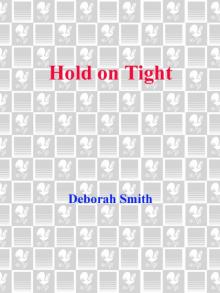 Hold on Tight
Hold on Tight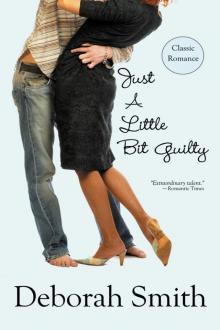 Just a Little Bit Guilty
Just a Little Bit Guilty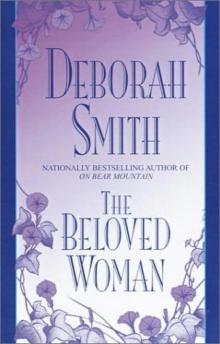 The Beloved Woman
The Beloved Woman Alice At Heart
Alice At Heart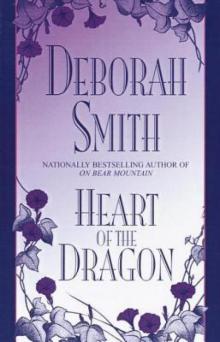 Heart of the Dragon
Heart of the Dragon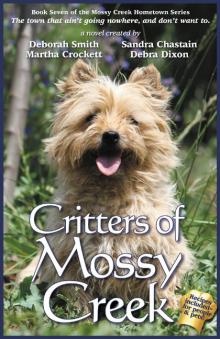 Critters of Mossy Creek
Critters of Mossy Creek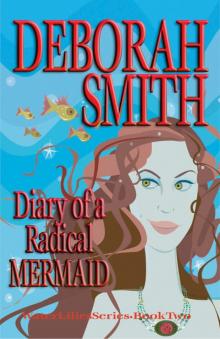 Diary of a Radical Mermaid
Diary of a Radical Mermaid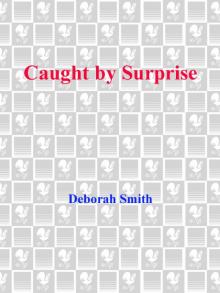 Caught by Surprise
Caught by Surprise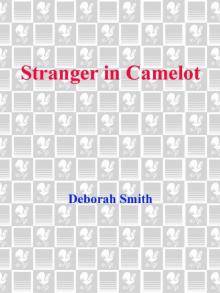 Stranger in Camelot
Stranger in Camelot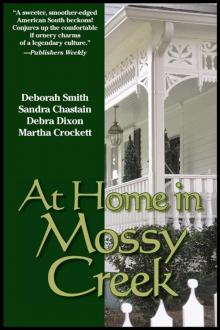 At Home in Mossy Creek
At Home in Mossy Creek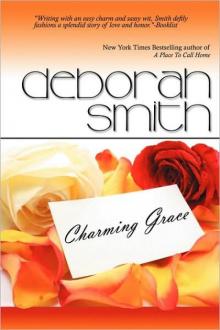 Charming Grace
Charming Grace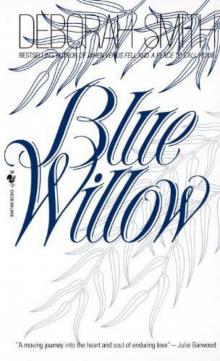 Blue Willow
Blue Willow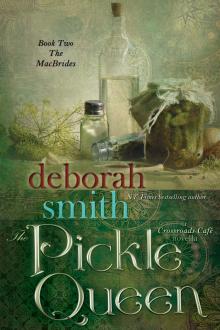 The Pickle Queen: A Crossroads Café Novella
The Pickle Queen: A Crossroads Café Novella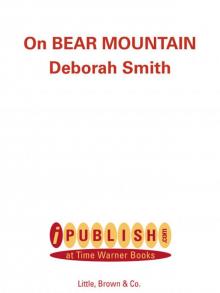 On Bear Mountain
On Bear Mountain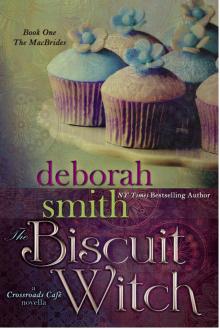 The Biscuit Witch
The Biscuit Witch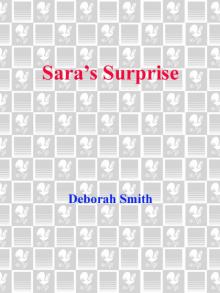 Sara's Surprise
Sara's Surprise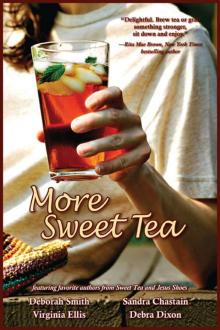 More Sweet Tea
More Sweet Tea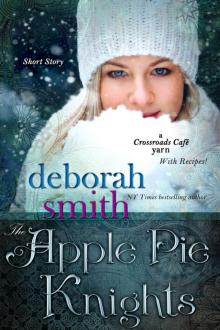 The Apple Pie Knights
The Apple Pie Knights The Silver Fox and the Red-Hot Dove
The Silver Fox and the Red-Hot Dove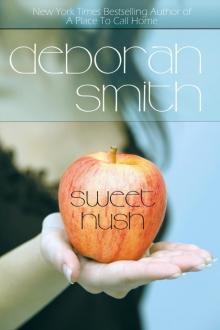 Sweet Hush
Sweet Hush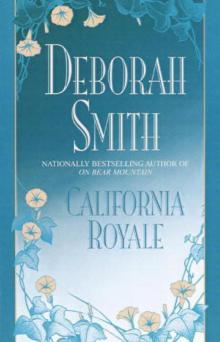 California Royale
California Royale Hot Touch
Hot Touch Miracle
Miracle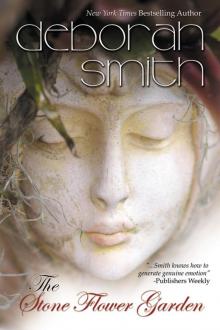 The Stone Flower Garden
The Stone Flower Garden A Place to Call Home
A Place to Call Home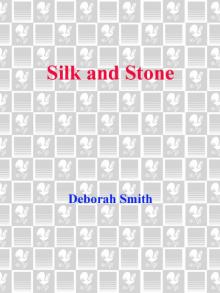 Silk and Stone
Silk and Stone Honey and Smoke
Honey and Smoke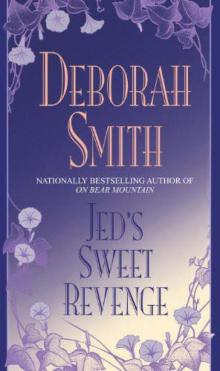 Jed's Sweet Revenge
Jed's Sweet Revenge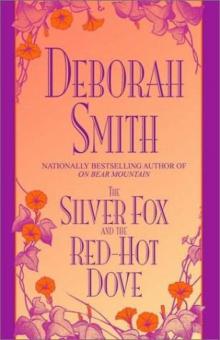 Silver Fox and Red Hot Dove
Silver Fox and Red Hot Dove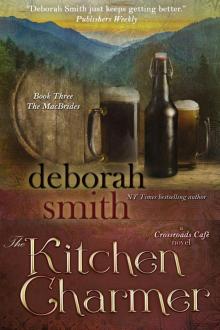 The Kitchen Charmer
The Kitchen Charmer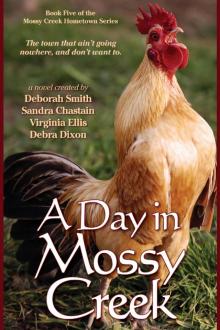 A Day in Mossy Creek
A Day in Mossy Creek Never Let Go
Never Let Go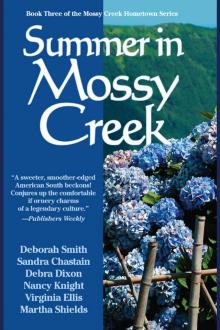 Summer in Mossy Creek
Summer in Mossy Creek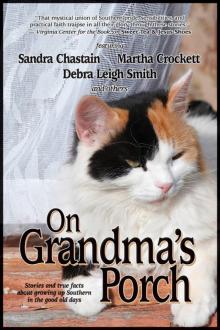 On Grandma's Porch
On Grandma's Porch The Crossroads Cafe
The Crossroads Cafe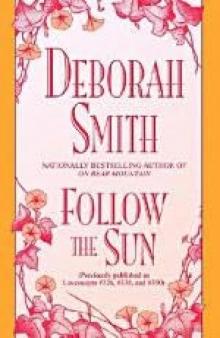 Follow the Sun
Follow the Sun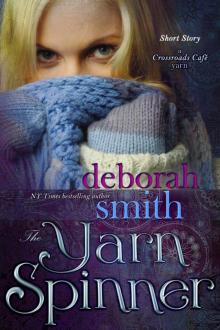 The Yarn Spinner
The Yarn Spinner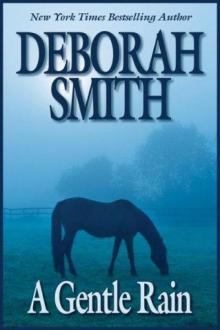 A Gentle Rain
A Gentle Rain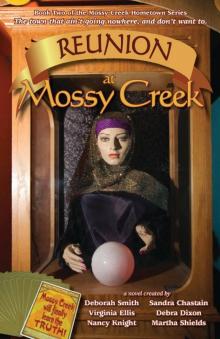 Reunion at Mossy Creek
Reunion at Mossy Creek